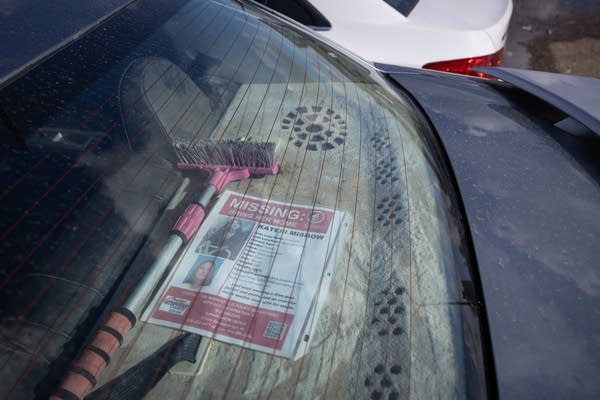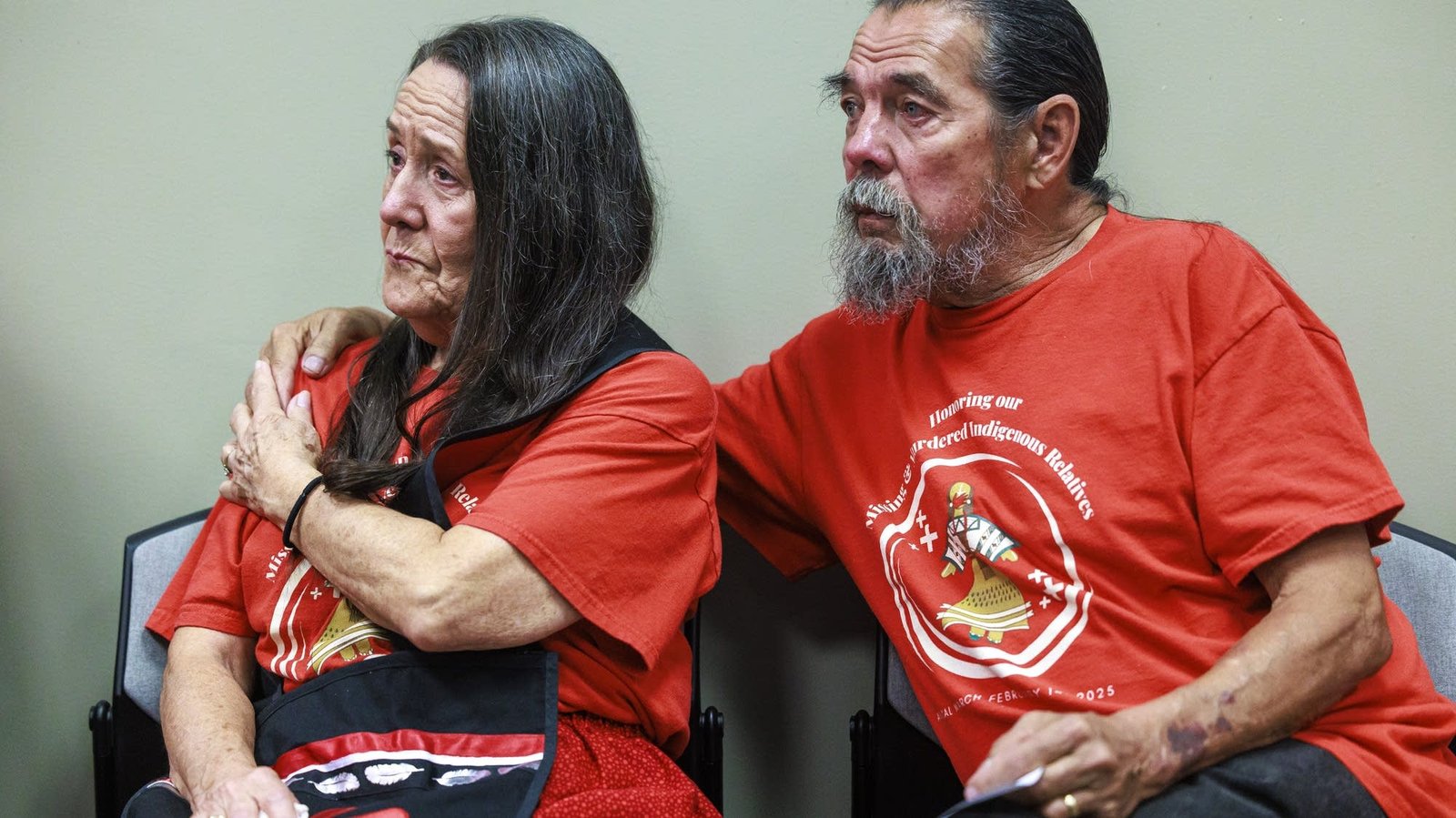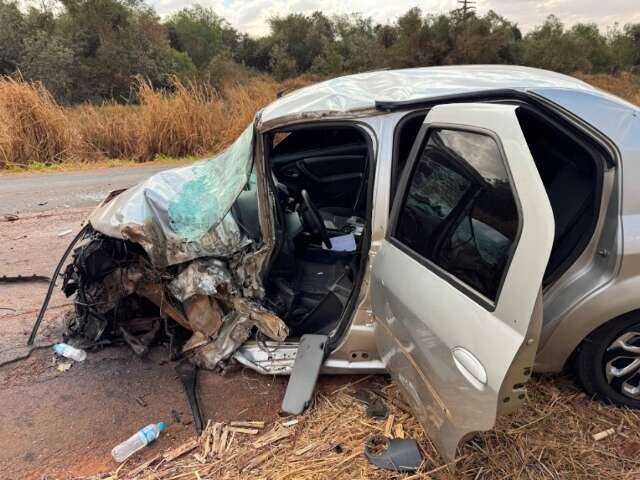Kathy Mishow said when she and her husband Ira Mishow reported their daughter missing, there was a brief flurry of information coming from community. And then nothing.
Kateri Mishow was 22 years old when she went missing in 2007.
“It’s been almost 20 years. We still don’t have any answers, and we are still hoping that we might find some answers. I have prayed every day for some resolution, some way to ease that pain of not knowing,” said Kathy Mishow at a Wednesday morning news conference in St. Paul.
Kathy Mishow and Ira Mishow have searched for their daughter for the past two decades. The Mishows are among more than a dozen families hoping a new reward program will help bring their loved ones home.
At the news conference, the state’s Missing and Murdered Indigenous Relatives Office announced it will reward people who come forward with information in missing persons and homicide investigations.
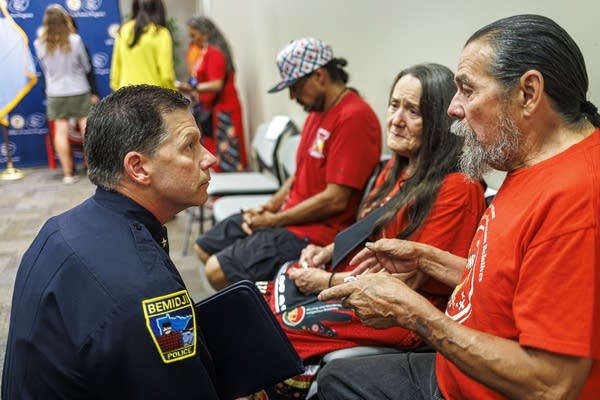
MMIR office interim executive director Ana Negrete acknowledged that the Mishows and other families have been waiting too long for help in searching for their loved ones.
“They waited for this process,” said Negrete. “They wait for justice, and they waited for this fund to exist. That wait comes to an end today. Today, we take step forward to answer the call for help and support.”
The Gaagige-Mikwendaagoziwag Reward Fund will begin offering rewards of up to $10,000 to people who can provide tips in missing persons and homicide investigations.
The name “Gaagige-Mikwendaagoziwag” means, “They will be remembered forever,” in the Ojibwe language. The name was given to the reward fund by Rene Ann Goodrich and Ricky DeFoe, community activists in the Duluth area who have advocated for more visibility in cases involving Indigenous people.
Lawmakers seeded the state’s reward fund with $250,000 when the office of Missing and Murdered Indigenous Relatives office was created in the 2022-2023 legislative session.
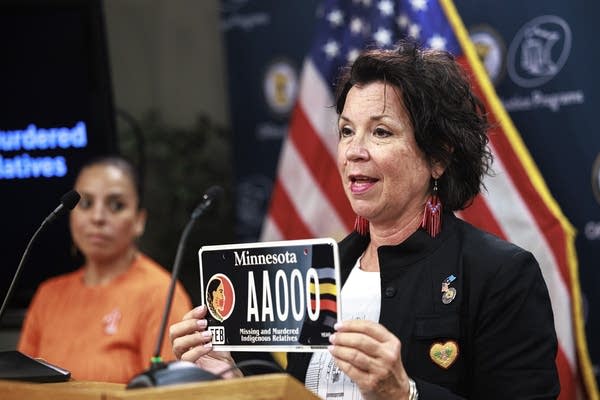
Last year, Sen. Mary Kunesh, DFL-New Brighton, passed legislation creating a specialty license plate program intended to raise additional money for the reward fund. More than 4,400 Minnesota drivers have contributed an additional $100,000 to the fund over the past year.
Indigenous people are over-represented in missing persons cases in Minnesota. Last year, 716 Indigenous persons were reported missing in 2024, according to the Bureau of Criminal Apprehension’s Missing and Unidentified Persons Clearinghouse data. Of those, more than half were women. That number is down slightly from the year before.
Trust and anonymity
Negrete said Native communities don’t often feel they can trust law enforcement. For the past two years, Negrete and a group of advisors have worked to design a program that allows tipsters to remain anonymous.
“I say to those who have information: Now is the time. It’s your turn to be brave. Step out of a culture of silence. We need you to come forward with information that will help our families and our community heal,” Negrete said.
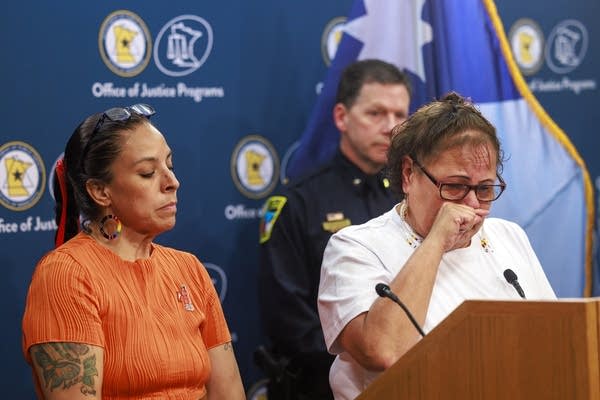
To be eligible for a reward, tipsters must provide “specific and actionable information” that advances an investigation. Tipsters involved as suspects or accomplices will not be eligible to receive a payout, according to Negrete.
Negrete said the MMIR advisory group designed the program to pay out rewards by determining the impact of information to an investigation. Negrete stressed a tip does not need to result in prosecution for a reward to be paid out. She added that the amount of a reward will be determined by the law enforcement agency investigating the case.
Negrete said the MMIR advisory group consulted with the Bemidji Police Department, Crime Stoppers of Minnesota, and the Bureau of Indian Affairs Missing and Murdered Unit to learn how tip programs work. Negrete explained that law enforcement, not the state’s MMIR office, will take tips directly.
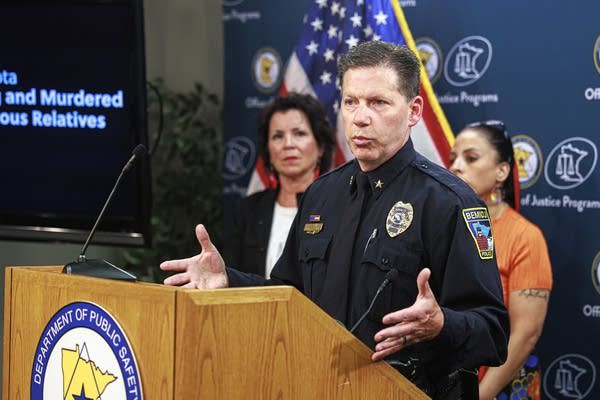
Chief Mike Mastin with the Bemidji Police Department spoke at the press conference. Mastin said his department is working on building trust with those who might come forward with information. Bemidji is located near three large Ojibwe reservations in north-central Minnesota.
“Retaliation is real, and it’s difficult to speak to someone that you don't trust, and you have – we have to get over that somehow,” Mastin said. “I’m hopeful that the question leading to: ‘Why is this [tip program] different than Crime Stoppers?’ This one is tied to the MMIR office. Perhaps that creates a new level of trust.”
Negrete said smaller police departments will work with Crime Stoppers of Minnesota to accept tips.
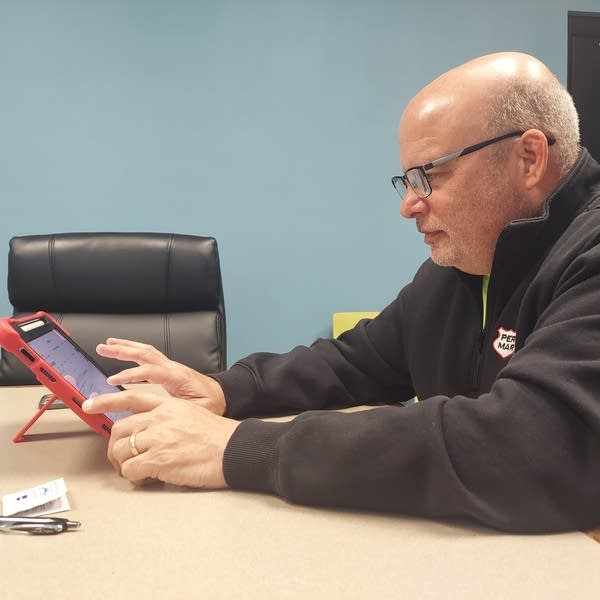
Nick Luciano has volunteered with Crime Stoppers of Minnesota for almost two decades.
Back when Luciano first started working with Crime Stoppers some 18 years ago, people left tips on an answering machine. Luciano said it takes more work to keep tipsters anonymous in a digital world where people’s identities are often part of their social media presence.
“We really don’t want to know who people are when they give us tips,” Luciano said.
Luciano said Crime Stoppers of Minnesota does everything it can to remove information when people call with tips or leave a tip through Crime Stoppers’ digital site, including removing IP addresses from the information they provide to law enforcement
“We’re just trying to protect those people who want to stay under the radar,” Luciano said.
So far in 2025 the MMIR office has closed eight cases, according to spokesperson Catriona Stuart. In six of those, the victim was found safe. Another victim was found dead, and another case ended in prosecution, according to Stuart.
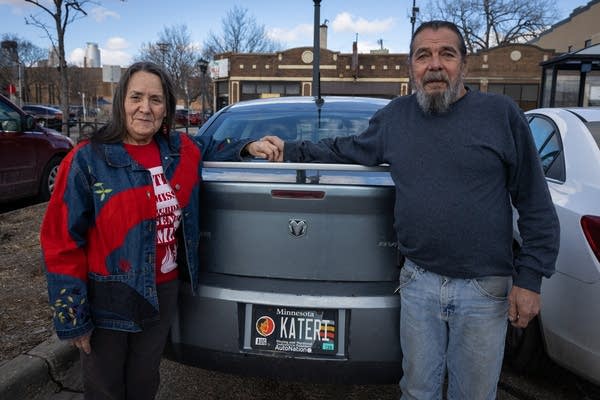
‘Every little bit helps’
When the state’s Missing and Murdered specialty license plates went on sale last year, Kathy Mishow and Ira Mishow were among the first to purchase one to honor their daughter’s story. Their daughter’s name, Kateri, appears on their plates.
They said they will use every available resource to keep searching for their daughter and for information related to her disappearance.
The Mishows say it’s the “not knowing” that’s the hardest for them. When Ira Mishow sees a car with the MMIR specialty plates, he leaves the driver with an MMIR sticker, a resource provided to the family by the MMIR office.
Ira Mishow said he keeps a flyer with his daughter’s photo in the rear driver’s side window of the family car. He said sometimes people ask him if they can snap a photo of the flyer for information’s sake.
“Every little bit helps.”
